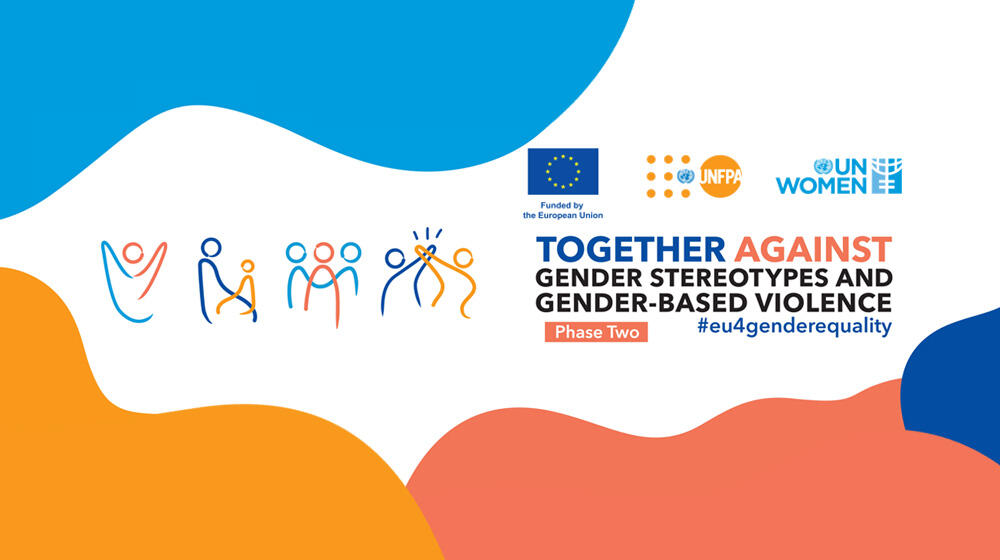The UNFPA Regional Office for Eastern Europe and Central Asia and the UN Women Regional Office for Europe and Central Asia, together with the European Union (EU), started the Phase II of the regional programme “EU 4 Gender Equality: Together against gender stereotypes and gender-based violence”. The programme aims to reduce gender discriminatory attitudes and practices between women and men in institutional and community spheres in six Eastern Partnership countries․
“Gender equality is a cornerstone of the European Union's values and a key driver for sustainable development. With the implementation of the “EU 4 Gender Equality Programme”, we are harnessing our commitment under the Gender Action Plan III to elevate gender equality initiatives in the Eastern Partnership region. Together, we are working to foster an environment where every woman, man, girl and boy have the opportunity to thrive, contribute, and shape a more inclusive future, free from discriminatory gender stereotypes”, – said David Cullen, Head of Unit, DG NEAR, C2.
Since the launch of the programme in 2020, more than 41 million people have been reached in the six target countries, 22 civil society and women’s organisations received small grants to implement innovative initiatives, and close to 4,000 men benefited from 49 newly established father schools.
The programme has resulted in positive shifts in gender attitudes, including an increased belief that both women and men should be equally responsible for unpaid care work and less likely to hold harmful gender biases.
“Stereotypes and social norms are not just harmful narratives; they are roadblocks that hinder progress for gender equality. By challenging and changing these deep-seated beliefs, we can create a society where everyone can unlock their full potential, regardless of gender,” said Belén Sanz Luque, UN Women Regional Director for Europe and Central Asia.
A Study on Gender Norms and Stereotypes, conducted under the first phase of the joint programme, showed that in the six programme countries, despite areas of improvement and some promising indicators, discriminatory social norms and attitudes continue to hinder progress for women and girls across multiple life domains resulting in different manifestations of gender inequalities, such as a high prevalence of violence against women, unequal distribution of unpaid domestic and care work, gender-biased sex selection, a gender pay and income gap, and underrepresentation of women in decision-making positions.
“Building on the strong partnerships we have created, we’re expanding our work to shift social perceptions around gender roles and tackle gender stereotypes to foster more equal and just societies in the EU’s Eastern Partnership countries,” said Florence Bauer, Regional Director for UNFPA Eastern Europe and Central Asia.
Phase II of the programme, running from January 2024 to May 2026, is supported by a budget of €5 million. The programme is addressing the root causes of gender inequalities by engaging a wide range of government bodies, civil society and women’s organizations, media representatives, and other non-traditional partners. Strong focus is given to partnering with civil society organizations, conducting innovative communication campaigns, and working with men through Fathers’ Schools.
This publication is produced in the framework of the second phase of the “EU 4 Gender Equality: Together against gender stereotypes and gender-based violence" programme (phase 2), funded by the European Union, implemented jointly by UN Women and UNFPA.
Its content is the sole responsibility of UN Women and UNFPA and does not necessarily reflect the views of the European Union.


